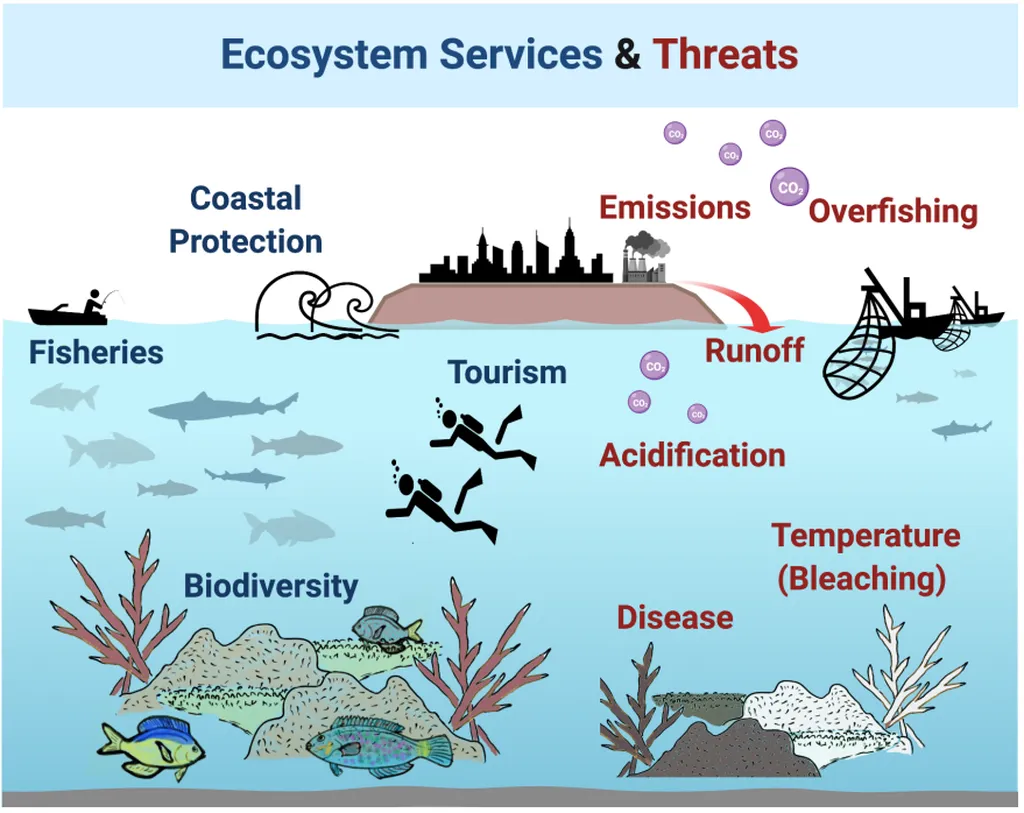The Earth’s warming trajectory has reached a critical juncture for tropical coral reefs, with scientists warning of catastrophic losses ahead. A landmark report, authored by 160 scientists across 23 countries, reveals that the planet has warmed by at least 1.3 degrees Celsius since the preindustrial era, breaching the threshold at which widespread damage to coral reefs is expected. This loss would have profound implications for the agriculture sector and investors, as reefs support the livelihoods of hundreds of millions of people worldwide who depend on them for food and income.
Coral reefs play a vital role in supporting fisheries, providing habitats for a quarter of all known marine species, and contributing to coastal protection. The degradation of these ecosystems could lead to a decline in fish populations, threatening food security and the livelihoods of coastal communities. For the agriculture sector, this could translate into increased pressure on terrestrial food systems to compensate for the loss of marine resources. Additionally, the loss of coastal protection provided by reefs could exacerbate the impacts of climate change on agricultural lands, such as increased salinity and erosion.
Investors, particularly those in the seafood and tourism industries, face significant risks. The decline of coral reefs could lead to reduced seafood yields and increased volatility in seafood prices, impacting the profitability of investments in these sectors. Furthermore, the tourism industry, which relies heavily on the aesthetic and recreational value of coral reefs, could experience decreased visitor numbers and revenue.
The report also highlights the risk of crossing other climate tipping points, such as the collapse of the West Antarctic Ice Sheet and the mass dieback of the Amazon rainforest. These events could have far-reaching consequences for global agriculture and investment. For instance, the collapse of the Amazon rainforest could disrupt regional and global climate patterns, leading to altered growing conditions and increased agricultural risks. Moreover, the potential collapse of the Atlantic current could disrupt marine ecosystems and fisheries, further impacting the agriculture sector and investors.
To mitigate these risks, the report emphasizes the need for countries to work together to preserve surviving reefs by protecting them from pollution and overfishing. Additionally, deep cuts to emissions are required now, rather than later, to avoid reaching key tipping points. Countries must also be prepared to draw down atmospheric carbon if warming surpasses 1.5 degrees Celsius, which scientists consider a near certainty.
As the world prepares for the next round of U.N. climate talks in Brazil, the report serves as a stark reminder of the urgent need for global cooperation and action. The agriculture sector and investors must recognize the gravity of the situation and support efforts to address climate change, not only to protect coral reefs but also to safeguard global food security and economic stability.

